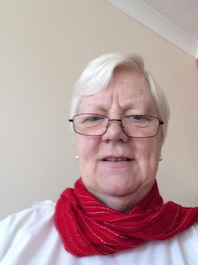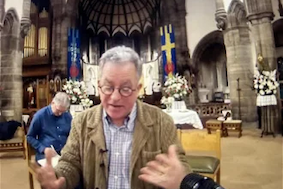J&P input to Synodal process

Maggie Beirne
Our Justice and Peace group in Westminster Diocese was unsure if there was to be any parish engagement in the synodal process so we held a discussion amongst the 10-15 members of our group. It proved to be very uplifting and energising and we felt our findings might encourage others to engage in the process. We found a listening exercise to be useful for ourselves, even if - in the eyes some cynics - we may not necessarily be listened to by our leadership.
We discussed the strengths and disappointments we had found in our faith and faith community. In the 'positive' balance sheet, we cited how the pandemic had amplified our sensitivities to inequalities in society and the extraordinary generosity elicited; the joy of working for common aims, in solidarity and ecumenically; the potential influence the Church has for positive change; and the fact that modern technology has been useful in reaching out to people on the margins (the housebound, the elderly, etc) as well as the global faith community.
On the other hand, we listed the disappointment of finding that the closure of Church buildings meant that the whole Church seemed to be closed; that our admin and IT skills were inadequate to maintain community, and know who was in need, still less to reach beyond the 'usual suspects' to all those needing our help; and the awareness that the centrality of justice and peace to our faith might not outlast the pandemic. Many have not come back (yet?) to church, and there is a sense of a loss of energy/being depressed/ isolated/ and people being overwhelmed.
The group's discussion about "what is Church, and who is missing" was intense. We noted the absence of people with disabilities; people who are feeling 'excluded' and those on the margins and hurt by life (eg homeless/ex-prisoners/addicts); people who have been divorced or who are struggling with the Church's teachings on sexuality/contraception/abortion /priestly celibacy. We explored what space is there in the Church for women, especially young women. Young people may feel that there is nothing in the Church for them and/or that it doesn't live out what it preaches, and are leaving, only returning (if we are lucky) for the baptism of their own children. We discussed the nature of leadership and the need for more partnership work between clergy and laity and the need for the Church to be more welcoming and reflecting God's mercy and love for humanity, rather than being judgemental.
When discussing "what steps might the Holy Spirit be inviting the Church to take in order to make our parishes and communities more welcoming, inclusive and missionary?" we talked of the training of priests; the importance of making Catholic Social Teaching more central to homilies and liturgies; and the involvement of women, young people and the laity generally. We discussed our dreams for the Church. One person said, "I dream of seeing the Church take an active stance against all who would harm God's people and creation". Another said, "I dream of a Church where those with power use their privilege to step back and open doors and empower others….and keep the 'gates' open and working for all so that the fruits of the Holy Spirit can come forth".
We had lots of practical ideas about giving effect to these dreams too - the need for mobilising young people and offering people a positive vision of the future; a move to more collaborative working in the Church, which means greater inclusivity: women, lay people, lgbt+ people and young people, people of all backgrounds and ethnicities, all working as equals with the clergy for the common good. The love of God should be visible to all, radiating from the Church.
In summary, our Justice and Peace group concluded, as a result of this discernment process, that parishes must build strong local communities to be able to go out and build God's kingdom on Earth; that the laity as the 'people of God' must be provided with the necessary support in terms of energies, formation and resources to make this a genuine team effort alongside the clergy; and that there are many practical things that can be done to make our visions a reality locally. The Holy Spirit will surely help us and guide us.


















